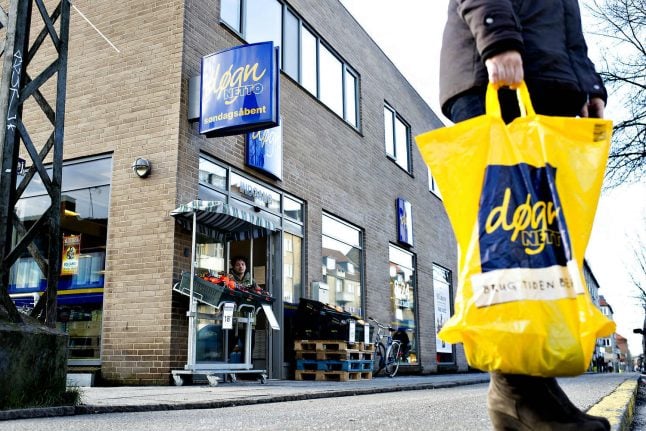The scheme, which works similar to the Danish pant system for returning bottles for recycling, adds an extra charge for the purchase of plastic bags, which can be refunded if the bags are later returned.
Netto tried out the carrier bag system at 42 of its stores on the island of Funen.
The ‘pant’ system for the plastic bags means they are charged at 50 øre (7 euro cents) more than the normal charge for plastic bags in Netto stores.
After two months trying out the system, fewer customers than expected have returned the refundable bags.
“But the number is increasing strongly. I think it is simply a question of people noticing others in the queue returning a bag,” Netto director Michael Løve told Ritzau.
Løve did not confirm any figures relating to the number of returned carrier bags, but said the Funen stores had sold ten percent fewer plastic bags than during the corresponding period last year.
He also said he did not believe that reduction was due to the slight price increase on the bags.
The trial was introduced in April and will run for another four months.
Netto originally planned to roll out the scheme to more stores after the trial, but that has been put on hold, Løve said.
“I am interested in turning plastic bags into something customers see more as something they have bought, so they are less tempted to use them as bin liners or throw them out. The plastic bag should be perceived the way most people see plastic bottles,” he said.
“We are going to create a version 2.0 of both the bags and the setup. It will have a period of testing before being rolled out to stores. We are discussing different models and will likely be ready to test something by the end of September,” he said.
The new version could be a carrier bag made of a different material, according to the director.
The overall aim of the Netto initiative is to reduce plastic pollution in natural areas. The company has 500 stores in Denmark and 800 in total in Sweden, Germany and Poland.
READ ALSO: Denmark's 'sustainable island' to scrap plastic bags



 Please whitelist us to continue reading.
Please whitelist us to continue reading.